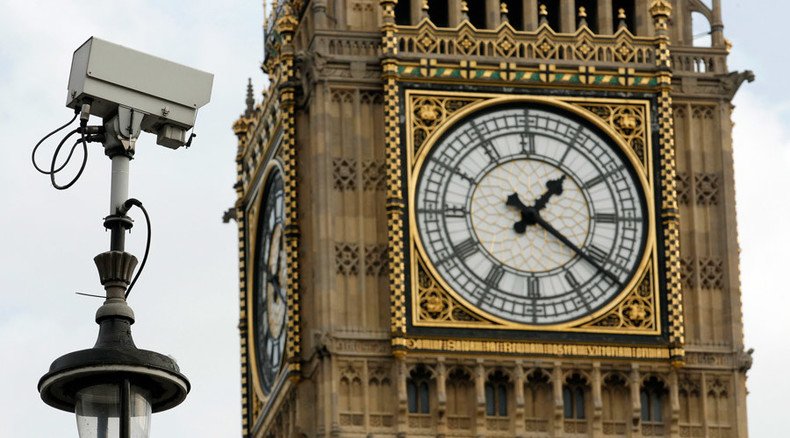Science of snooping: Internet spying cost & feasibility examined by MPs

MPs have launched an inquiry into the cost and feasibility of the government’s Investigatory Powers Bill, known as the Snooper’s Charter, to examine how it collects communication data and its impact on ISPs and citizens.
The Science and Technology Committee announced on Thursday it will focus on technology issues relating to the controversial legislation, which seeks to expand the surveillance powers of spy agencies and the police in the fight against terrorism.
The committee will investigate the technical feasibility of requiring internet service providers (ISPs) to store users’ browser history and the cost of the legislation, which critics believe could balloon from £250 million to £2 billion.
Home Secretary Theresa May came under fire when she unveiled the Draft Investigatory Powers Bill earlier this month.
Liberty director Shami Chakrabarti called on Parliament to address the Bill’s lack of balance between privacy and surveillance.
“After all the talk of climb-down’s and safeguards, this long-awaited Bill constitutes a breath-taking attack on the internet security of every man, woman and child in our country,” the civil rights champion said.
“We must now look to Parliament to step in where ministers have failed and strike a better balance between privacy and surveillance.”
‘Snooper’s Charter’ unveiled: Internet firms ordered to store browser history https://t.co/DCRLrHL2pgpic.twitter.com/zzOuyPBgig
— RT UK (@RTUKnews) November 4, 2015Former NSA contractor-turned-whistleblower Edward Snowden warned the bill would enable authorities to compile “the activity log of your life.”
Former Deputy Prime Minister Nick Clegg said the legislation could contain many of the “flaws” of legislation blocked by the Liberal Democrats in 2012.
The Science and Technology Committee announced it would investigate three key areas in the Bill.
“The technical feasibility and costs of meeting the obligations imposed by the bill; the impact on communications service providers and related businesses; and the likely consequences for citizen/consumer use of ICT services.”
Home Secretary Theresa May has estimated a £247-million price tag on implementing the Investigatory Powers Bill, but journalist Kelly Fiveash of the Register speculates the true cost could be closer to £2 billion, as current estimates do not take into account the potential costs for interception of bulk personal data and hacking into computer systems.
MPs went on to state they would look specifically at “the extent to which communications data and communications content can be separated and the extent to which this is reflected in the Draft Bill.”
Ministers insist the Bill will give police and spy agencies, such as GCHQ, limited powers to track citizens’ internet usage, because they will only see metadata of the web use and not actual content.
If authorities want to see which specific pages of a website someone visits, they will need a warrant from the Home Secretary or another senior minister. Some 2,700 warrants were issued last year.
A computer security and digital forensics researcher at Liverpool John Moores University has come up with a novel way to demonstrate the level of information British spooks will be able to access with and without a warrant.
Brett Lempereur set up a web page which streams information about the websites he visits in real-time – even those that are “not suitable for work.”
Lempereur uses a browser extension to gather the data and invites other internet users to take part in the project.












